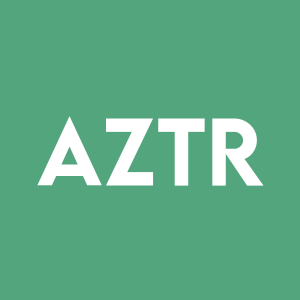Azitra Announces First Patient Screened and Scheduled to Enroll in Phase 1b Trial of ATR-12 for Netherton Syndrome
ATR-12 is Azitra's lead candidate, a proprietary strain of Staphylococcus epidermidis engineered to express therapeutic levels of an active subunit of the LEKTI protein to treat Netherton syndrome, a chronic genetic skin disease that can be life threatening.
"Enrolling the first patient in our Phase 1b trial of ATR-12 will mark a significant milestone for Azitra and, more importantly, for patients suffering from Netherton syndrome, who currently have limited treatment options," said Travis Whitfill, founder and COO of Azitra. "Our recent preclinical data demonstrate ATR-12's potential to effectively deliver an active LEKTI subunit into the skin and address the underlying mechanisms of Netherton syndrome."
Mary Spellman MD, Azitra’s acting CMO, added, “We are thrilled to begin this clinical trial of ATR-12 in Netherton syndrome patients. These patients suffer from poor quality of life and often debilitating disease, and this trial will inform future studies for the treatment of Netherton syndrome in pediatric patients and for longer treatment durations.”
The Phase 1b trial (NCT06137157) is a multicenter, randomized, double-blind, vehicle-controlled study in approximately 12 adult patients with Netherton syndrome. Patients will be treated with 109 CFU / g twice daily with ATR-12 or its vehicle control on the contralateral side of the body twice daily for 14 days. The primary objective is to assess the safety and tolerability of topical ATR-12 application. Secondary objectives include evaluating efficacy signals (e.g., investigator and patient global assessments) and skin pharmacokinetics of the LEKTI subunit. Additional exploratory objectives include evaluating pharmacodynamic parameters, biomarkers, anti-LEKTI response, and cytokine responses.
The trial design is supported by compelling preclinical data recently presented at the American Society of Gene and Cell Therapy (ASGCT) 2024 Annual Meeting. Key findings included:
-
Topical application of ATR-12 in preclinical models reduced IL-36γ by
93% compared to skin extracts induced to overexpress IL-36γ - ATR-12 significantly reduced protease activity in skin samples compared to a Netherton syndrome model skin (p<0.01)
- ATR-12 produced higher amounts of LEKTI subunit compared to topical application of LEKTI protein alone (6.0 µg vs. 2.3 µg, respectively, p<0.01) after 24 hours and resulted in deeper skin penetration of LEKTI
About ATR-12
ATR-12 (also known as ATR12-351) is an engineered strain of S. epidermidis that expresses an active subunit of human lympho-epithelial Kazal-type-related inhibitor (LEKTI) protein, which is missing in patients with Netherton syndrome, a chronic and sometimes fatal disease of the skin estimated to affect approximately one to nine in every 100,000. ATR-12 has been engineered to deliver missing LEKTI protein when applied topically to Netherton syndrome patients. Azitra has an open IND for a Phase 1b clinical trial in adult patients (NCT06137157). Azitra has secured clinical sites and identified Netherton syndrome patients for enrollment in its 12-patient, Phase 1b clinical trial, which will assess safety, tolerability, and efficacy endpoints. Azitra expects to announce initial safety data before year end.
About Azitra, Inc.
Azitra, Inc. is an early-stage clinical biopharmaceutical company focused on developing innovative therapies for precision dermatology using engineered proteins and topical live biotherapeutic products. The Company has built a proprietary platform that includes a microbial library comprised of approximately 1,500 unique bacterial strains that can be screened for unique therapeutic characteristics. The platform is augmented by artificial intelligence and machine learning technology that analyzes, predicts, and helps screen the Company's library of strains for drug like molecules. The Company's initial focus is on the development of genetically engineered strains of Staphylococcus epidermidis, or S. epidermidis, which the Company considers to be an optimal therapeutic candidate species for engineering of dermatologic therapies. For more information, please visit https://azitrainc.com/.
Forward-Looking Statements
This press release contains forward-looking statements within the meaning of the Private Securities Litigation Reform Act of 1995, as amended. These statements may be identified by words such as "aims," "anticipates," "believes," "could," "estimates," "expects," "forecasts," "goal," "intends," "may," "plans," "possible," "potential," "seeks," "will," and variations of these words or similar expressions that are intended to identify forward-looking statements. Any such statements in this press release that are not statements of historical fact may be deemed to be forward-looking statements. These forward-looking statements include, without limitation, statements regarding the expected timing of the presentation of data from the Phase 1b study of ATR-12 and statements about our clinical and preclinical programs, and corporate and clinical/preclinical strategies.
Any forward-looking statements in this press release are based on current expectations, estimates and projections only as of the date of this release and are subject to a number of risks and uncertainties that could cause actual results to differ materially and adversely from those set forth in or implied by such forward-looking statements. These risks and uncertainties include, but are not limited to that we may fail to successfully complete our Phase 1b trial for ATR-12 and preclinical studies of other product candidates and obtain required approval before commercialization; our product candidates may not be effective; there may be delays in regulatory approval or changes in regulatory framework that are out of our control; our estimation of addressable markets of our product candidates may be inaccurate; we may fail to timely raise additional required funding; more efficient competitors or more effective competing treatment may emerge; we may be involved in disputes surrounding the use of our intellectual property crucial to our success; we may not be able to attract and retain key employees and qualified personnel; earlier study results may not be predictive of later stage study outcomes; and we are dependent on third-parties for some or all aspects of our product manufacturing, research and preclinical and clinical testing. Additional risks are described in our Form 10-Q filed with the SEC on August 12, 2024. Azitra explicitly disclaims any obligation to update any forward-looking statements except to the extent required by law.
View source version on businesswire.com: https://www.businesswire.com/news/home/20240821927788/en/
Investor Relations Contact:
Norman Staskey
Chief Financial Officer
staskey@azitrainc.com
Hayden IR
James Carbonara
(646) 755-7412
james@haydenir.com
Source: Azitra, Inc.






